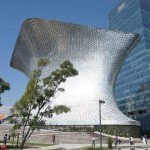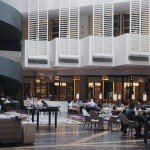It rained as if the end of the world were on its way. Drops ricocheted off of the corrugated metal roof, the sharp pinging sounds interrupting an already tentative slumber. He had only managed to go under at all as a result of sheer exhaustion, but his nerves, tripwire-set as they were, wouldn’t let him be—not in the midst of such weather.
He wasn’t supposed to be here. Not anymore. This place was intended as a brief layover, a short stop on the way to where the Feds would ultimately set him up. But then the storms rolled in; unpredictable pockets of torrential rain and winds that would lift just as quickly as they set down. They kept him pinned in this shack, the location of which he wasn’t exactly sure. The Agents who set him up here knew where to find him, as did the local boy whom they had paid to bring him provisions, but that was it. At least, he hoped it was.
He took some comfort in the remoteness of his location, and in the fact that he was, for all intents and purposes, no longer the man that he had until very recently been. They gave him a new name and corresponding paperwork, complete with a new backstory. He no longer came from where he was born, no longer knew the people he had met, no longer had roots or a life to look back on. He only existed from here, and from here anything could only exist through forward motion. He clung to this thought as he began to count backward from a thousand in an effort to tune out both his brain and the fusillade of rain that continued to lay siege to the roof. He timed the countdown to coincide with his heartbeat, hard evidence of a now-tentative existence. Eventually, sleep pulled him under.
* * *
The receding storm left a damp chill in its wake. He sat on the rickety porch, atop the upturned wooden fruit crate, a flannel blanket slung over his shoulders. His eyes ran along the length of dilapidated fence and out to the bay. In his left hand he held one of the avocados the local boy had brought. The kid referred to them as alligator pears, and had he not been so distracted, he might have asked about the etymology of the name.
He ran his thumb over the pebbled skin and applied gentle pressure, finding a slight give. He balanced the fruit between his knees as he used both hands to fold out and lock open the blade of an Opinel. He used the knife to first halve and then pit the avocado. He began, quite absently, to slice the meat in a crosshatch pattern.
The avocado had been similarly cubed in the salad he ordered, at that café in Tribeca, where they’d first met to discuss business. Avocado, heirloom tomatoes, olive oil and sea salt. The whole meal had been quite good: the meeting, almost business as usual. He remembered feeling a sense of surprise at how normally everything seemed to unfold, considering the type of associates with whom he was entering into this endeavor. He had gone into the sit-down gripped by nervous excitement, aware of the element of danger that might accompany this sort of undertaking, but the feeling dissipated gradually. He came to regard it as just another account, balancing numbers in a book, the way he had done with countless ledgers on countless occasions. The money was good, of course; that had been the reason to take the position in the first place. And the particulars of this type of account had allowed him more creativity, certainly; moving numbers here, absorbing figures there. But once he got into the routine of it, it became just that.
He was almost surprised, then, when the Agents approached him. He quickly realized that the meeting they were requesting was decidedly nonoptional, and went with them quietly. They sat him down and laid out an explicit list of things he had helped to facilitate, peripheral though he may have been. It was the first time in some time that he had been made to face the reality of his business ties, and it set off a rancid taste in his throat. The Agents explained both of his options moving forward, and his delusions of stoicism were short-lived enough to allow him to opt for the latter rather quickly. He was aware, however, of the reach and sway that his associates maintained, and only agreed to cooperate on the condition that the Feds set him up outside of the States. He was sure he hadn’t enjoyed a good night’s sleep since.
The porch creaked underneath him. His attention snapped back to the fruit crate and the grain of the wooden handle resting in his palm. He pried a cube of green flesh out of the shell with the blade of the knife and brought it to his mouth. He looked out over the water, in toward the shoreline and noticed how quickly the level had risen.
* * *
Nightfall brought with it a particular intrigue. Watching from an open window, he sensed deception in the stillness, as if the nocturnal air were itself a palpable beast, set squarely on its haunches, waiting to spring and pounce. The dark seemed to surround and envelop him, and a feeling of restlessness set in.
He closed his eyes and keyed into his breathing. He envisioned the insides of his lungs, his diaphragm, rising and falling in cycle. He thought back on the recent days of his life, the push and pull, the expansion and contraction and approaching expansion that defined his current position. He thought about the money. The money, which at one point seemed like a singular, driving force, now seemed more a part of the natural ebb and flow of everything around him.
The gentle sound of waves lapping against the shore drew his attention. He opened his eyes, and found the soft light of the candle obtrusive. He extinguished it, and turned his head toward the window. Looking in the direction of the beach, he set his eyes on a spot in the distance. After a time, they adjusted, and he was able to find nuance amidst the darkness.
* * *
The wind chimes hung undisturbed, but the sky told a different story. The contrast seemed sinister, as if the chimes were daring him, baiting him with their stillness. He stood in the yard watching a mass of cloud in the distance roll slowly toward him. The dark billows seemed to sink into themselves, even as they drew closer. The air around him cooled as the surrounding light was pushed out to make room for a gloomy shade.
He inhaled, filling his nostrils with a crisp, saline odor. He marveled at how acutely the scent foretold the approaching weather. There came a moment—and it was just the briefest of them, though he felt incredibly attuned to it—when everything around him seemed to stop completely, like the pause before a sneeze. In this instant, he experienced a sense of the elements coalescing, only to press on with newfound clarity.
When the chimes finally spoke up, their gentle tinkling belied the grave appearance of the sky behind them. He turned and made for the house, and by the time he hit the porch the chimes had worked themselves up to a nervous titter that pushed him quickly indoors. Once inside, he closed the windows, locked the door and braced for the marvelous violence to come.
* * *
The wind spoke volumes. He sat, rapt with attention. Raindrops tapped the windowpane, and the obscured light of a near-full moon found its way into the room. He followed the orchestral chaos that raged outside: the creaking of a loose slat in the fence, a sheet of rain cascading across the roof above him, the cacophony of wind chimes, the dull crack of the bottom of a fishing boat slapping back against a sudden wave, the shudder of the walls around him.
This weather would pass, and calm would return, giving him a window. He’d move on from this place, settling where he ended up. Maybe not the right word, as he didn’t know if he’d ever feel completely settled, but he’d do the best he could. He’d become a part of the landscape, sinking into the fabric of a new place. He was only who he now was, and that could mean any number of things. He’d have the opportunity to figure it out. With time, he thought, answers would come, if he allowed himself to pay attention.
He mulled this over as he sat silently, eyes closed, listening to the inconstant rhythm of the rain.
-by Greg Wands



